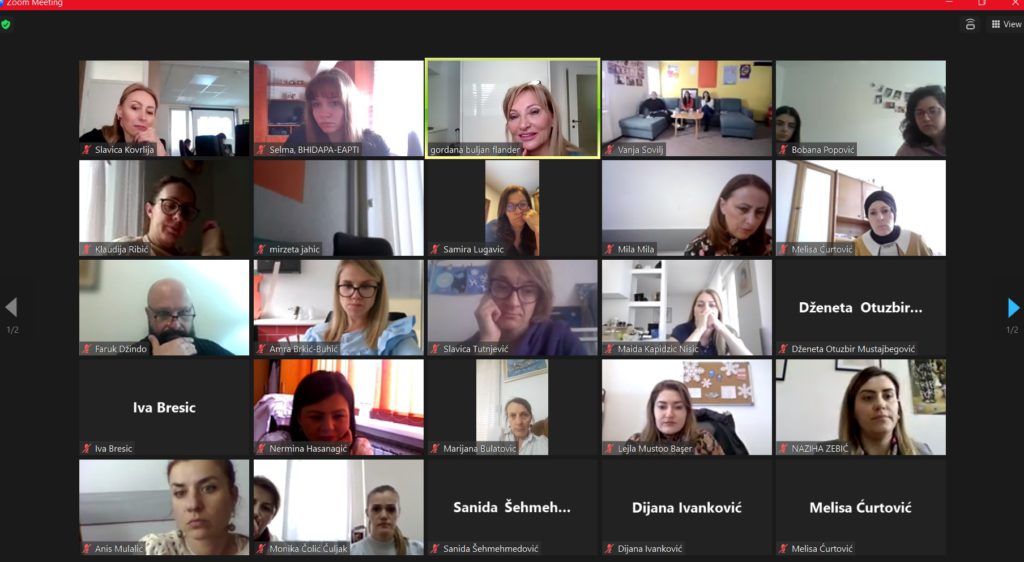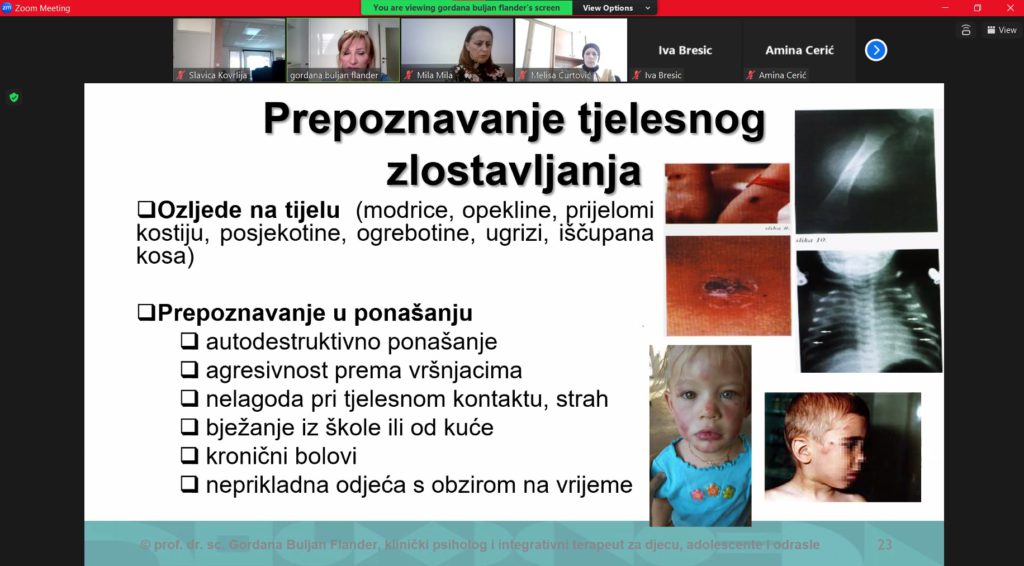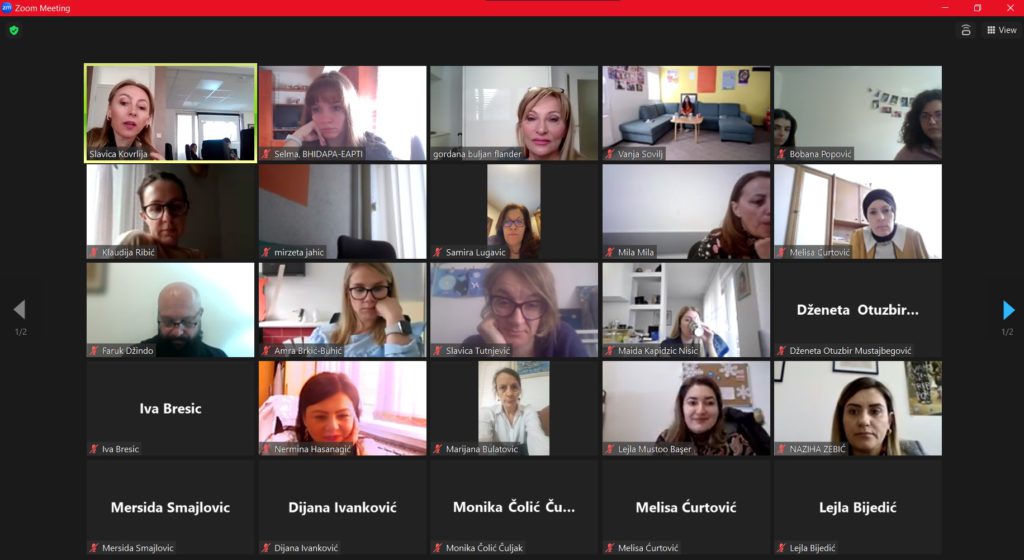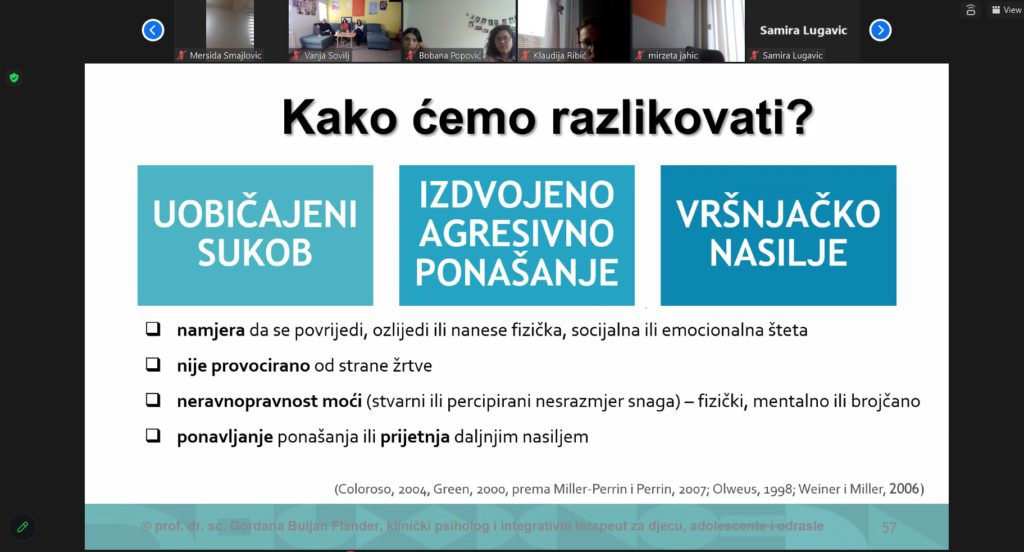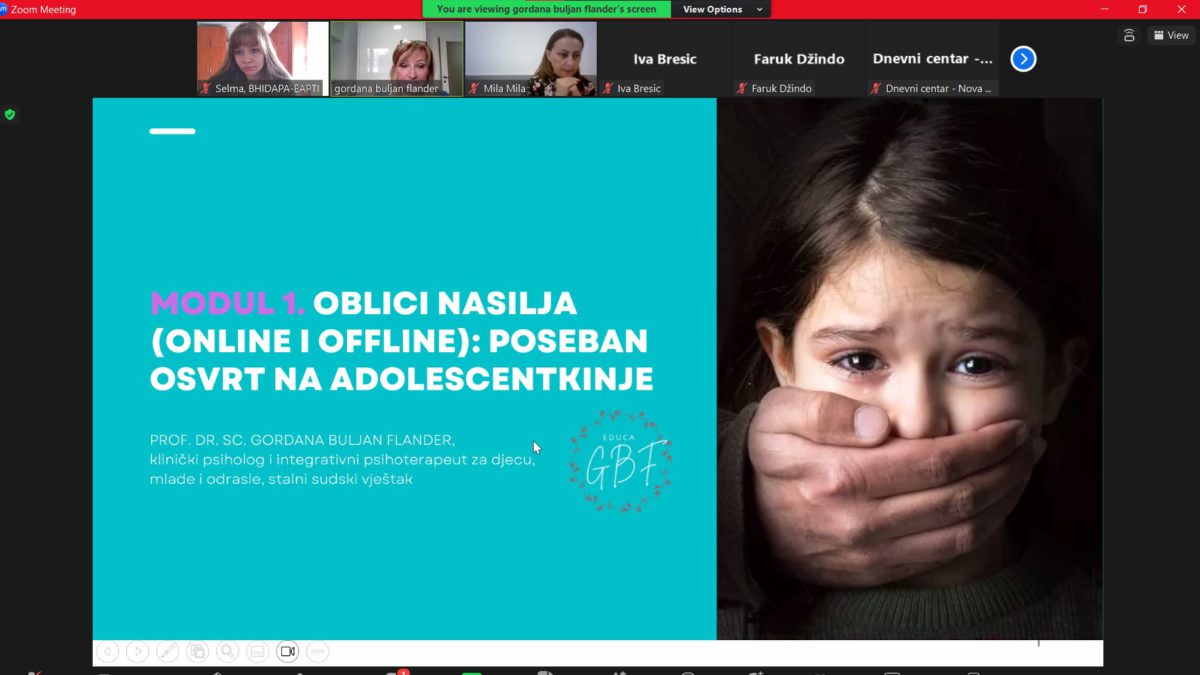BHIDAPA, in cooperation with UNICEF and with the consent of the relevant ministries, continues with the sixth cycle of online specialized training under the name Interdisciplinary Network of Professionals “Here & Now”: Care about Adolescent Girls, focused on preventive psychosocial activities and interventions in the treatment of adolescent girls who have survived abuse with a focus on sexual abuse.
The project is implemented in response to the global report of the World Health Organization and UNICEF on exposure to and prevention of violence against children, which indicate that: Although there is some progress in Bosnia and Herzegovina in terms of achieving gender equality and empowering women and girls in the past decades, gender inequality are still expressed; The most vulnerable are girls from minority groups, girls living in poverty and rural areas, girls with disabilities, refugee and migrant girls — they are often left behind and their rights are not fulfilled; B&H has one of the highest rates of sexual violence in the region; About 19% of children stated that they had experienced sexual violence during their entire life, and 14% during the previous 12 months. Child marriage remains a challenge that affects girls and women more than boys and men; Global Report on the State of Violence Against Children Estimates that one billion children – or one in two children worldwide – suffer some form of violence each year. More and more research confirm the harmful consequences of violence that destroy the abilities of future generations; Globally, mental disorders are an important and often neglected cause of suffering that interferes with the health, education, protection and well-being of adolescents, as well as their ability to reach their full potential.
That is why this project, which aims to – Removing barriers: transforming services for an empowered future for all adolescent girls, through empowering experts within the health, social and educational sectors to support adolescent girls who have survived violence, while providing a girl-friendly environment
The goal is to raise awareness about violence, risks and interventions through theoretical, experiential, supervisory modules and focus groups with adolescent girls who will be consulted in the development of the module and give feedback on the module and service provision, in order to further improve the approach.
The first module of the sixth education-training cycle was held on Friday, April 19th, 2024. year on the topic “Forms of violence (online and offline): special focus on adolescent girls”. A special asset of this program is the possibility of supervisory work and support for the personal growth and development of the participants through group processes.
The module was led by our dear European accredited trainers prof. Ph.D. Gordana Buljan Flander, clin. psychologist, psychotherapist, trainer and court expert for abused and neglected children and B.Sc. and Dr. sc. Mirela Badurina, gestalt and integrative psychotherapist, integrative psychotherapist for children and adolescents, trainer, mentor and supervisor
At the opening ceremony of the fourth education-training cycle, welcoming words and welcome to the participants were given by dr. sc. Mirela Badurina, project manager.
We would like to thank our dear colleagues for their trust and motivation during the module.

